- লিঙ্ক পান
- ইমেল
- অন্যান্য অ্যাপ
9 Reasons Vitamins Could Make You Feel Worse
Vitamins and minerals promise many health benefits, but if you take too much, mix and match, or don’t choose your brand wisely, they may leave you feeling lousy.
You’re not getting what you think you are
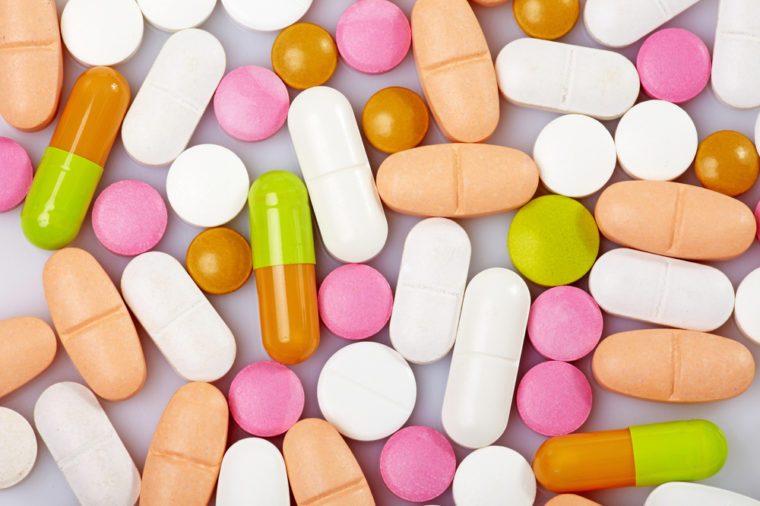 Karlisz/Shutterstock
Karlisz/Shutterstock
The U.S. Food and Drug Administration does not test or regulate vitamins and supplements in the same way that they do drugs, explains Sreekant Cherukuri, MD, an otolaryngologist in private practice in Munster and Hobart, Indiana, who runs a website called SmartCeuticals. “There is nothing to say that what is on the label is in the product so it’s hard to know what you are buying,” he warns. “You may think you are getting a multivitamin when you are actually getting a chemical that is not for sale in the United States and you can end up feeling lousy …or worse.” This is just one of the secrets that vitamin manufacturers don’t want you to know. Avoid trouble by looking for the “U.S. Pharmacopeia Verified” mark, which means that the quality, purity, and potency of the raw ingredients or finished products are verified by U.S. Pharmacopeia (USP). This stamp assures you that the product does, in fact, contain the ingredients listed on the label and that it has been made according to the FDA’s Good Manufacturing Practices.
You’re storing them all wrong
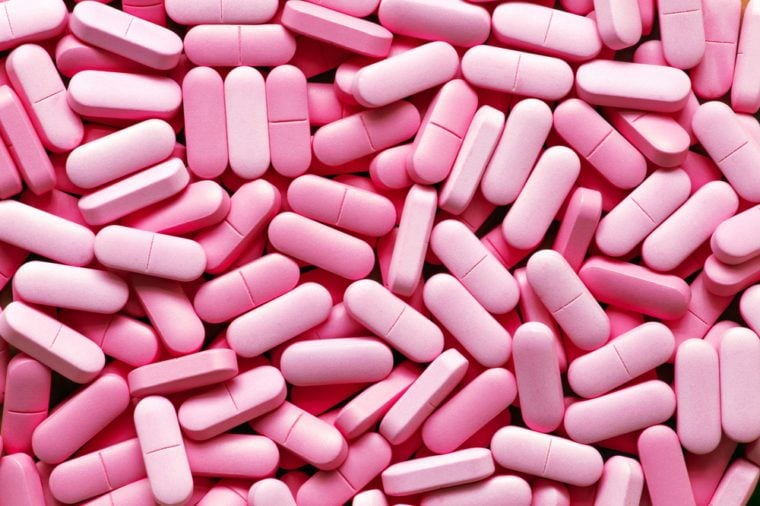 Pavel Kubarkov/Shutterstock
Pavel Kubarkov/Shutterstock
Yes, your refrigerator is cool, but it’s also full of moisture, which can reduce vitamins’ shelf life and effectiveness. If you are taking the vitamin or supplement to feel better and stronger, it may not be able to do its job if not stored properly. Here’s how to store your vitamins.
They harm your liver
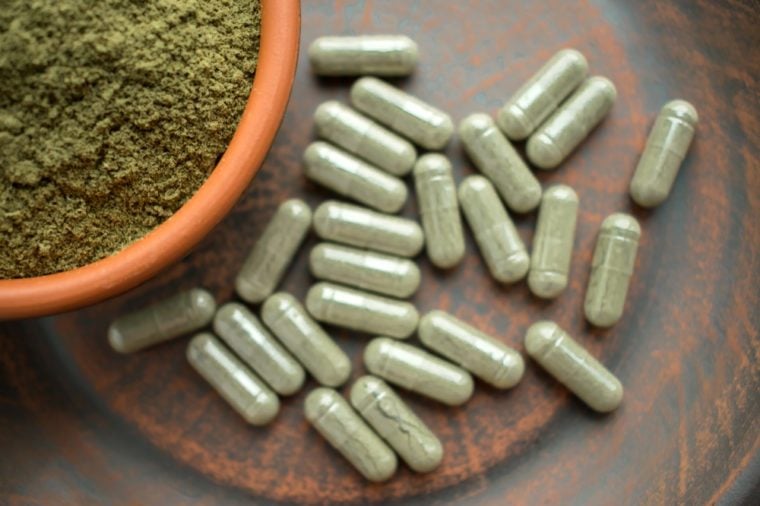 Iryna Imago/Shutterstock
Iryna Imago/Shutterstock
Many herbal remedies and dietary supplements can also harm the liver including those that contain green tea extract, according to a study in Hepatology. These supplement-related liver injuries are on the rise, jumping from just 7 percent of all drug-induced liver injuries in 2004 to about 20 percent in 2014, the study showed. “Liver failure will present with jaundice or yellowing of the skin and/or overall malaise,” says Dr. Cherukuri. “It can affect your digestion and cause constipation or diarrhea,” he says. Don’t miss these 12 vitamin mistakes you didn’t know you were making.
Your supplement contains too much caffeine
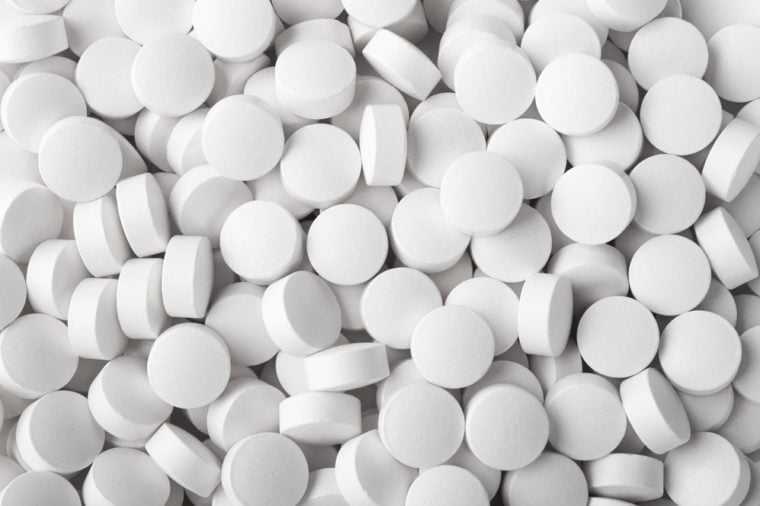 Volodymyr Krasyuk/Shutterstock
Volodymyr Krasyuk/Shutterstock
Energy shots, drinks, bars, and supplements are all the rage, but many of these contain caffeine. “If you take an energy-boosting supplement that has high amounts of caffeine or another unknown stimulant, you can get the jitters, heart palpitations, and high blood pressure,” Dr. Cherukuri says. “It can also keep you up at night.”
Powdered or liquid mixes are often sold in bulk packages and can be particularly dangerous, which is why the FDA is cracking down this industry; government guidelines state that these are unlawful when sold in bulk quantities directly to consumers and is taking immediate steps to remove them from the market.
You take them on an empty stomach
 Saowanee K/Shutterstock
Saowanee K/Shutterstock
While some vitamins are fine to take on an empty stomach, others―like vitamin C, folate, or iron―may cause nausea when your belly’s empty. Read the instructions on the label or ask your doctor how to best take your vitamin or supplement. There are other ways to make your vitamins more effective too.
You mix and match
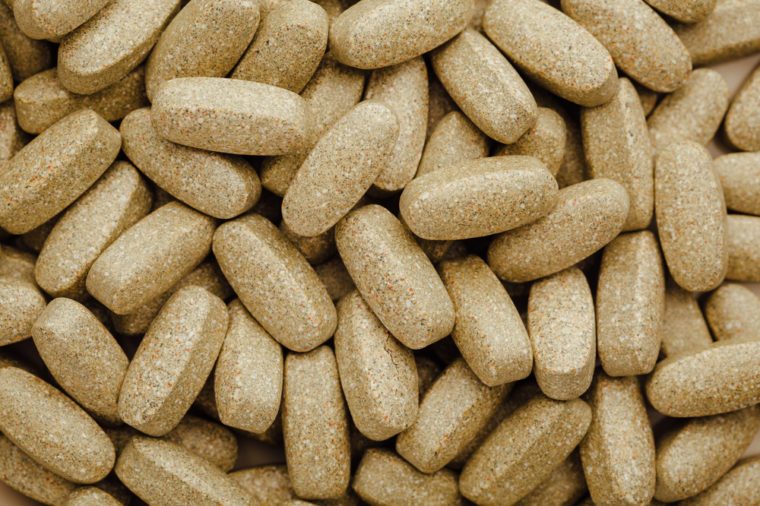 nikkytok/Shutterstock
nikkytok/Shutterstock
Vitamins and supplements can interact with drugs or other supplements and leave you feeling lousy, says Dr. Cherukuri. If you mix St. John’s wort (people take it for mild depression) with an herb that acts like a sedative—melatonin, valerian, ashwagandha or kava—you can end up feeling excessively drowsy, he says—or the supplement cocktail could have the opposite effect. “If you are taking a prescription blood thinner, and take a supplement that also thins the blood, you can develop a serious bleeding issue,” warns Dr. Cherukuri. Garlic, ginkgo biloba, fish oil, ginger, feverfew, vitamin E, and white willow bark also thin blood. Check out some other dangerous supplement-medication combos.
They increase your risk for colon cancer
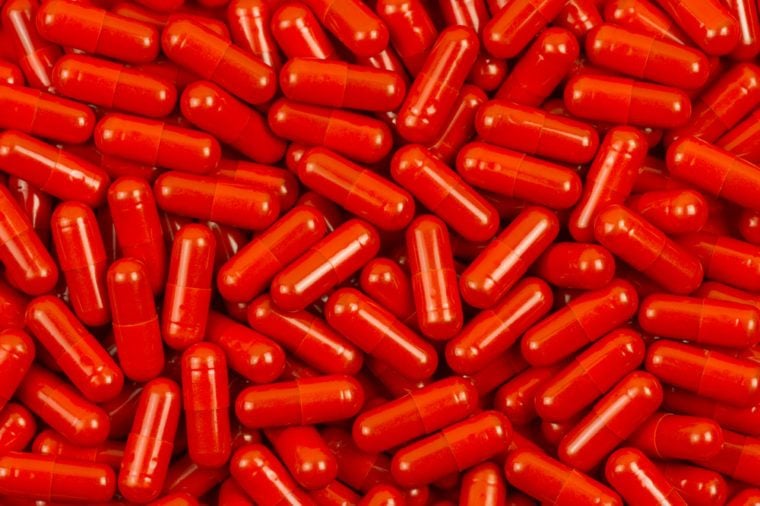 macrowildlife/Shutterstock
macrowildlife/Shutterstock
Two types of iron—ferric citrate and ferric EDTA—may increase your risk of colon cancer, and ferric citrate is used in iron supplements. Researchers looked at the effect of normal doses of these compounds on two types of human colon cancer cells in a study. They noted an increase in cellular levels of cancer biomarkers—even when the iron doses were low. “Many stores and suppliers don’t actually state what kind of iron compound is present. Usually, it just says ‘iron’ or ‘iron mineral’, which is problematic for consumers,” says study author Nathalie Scheers, PhD, assistant professor at Chalmers University of Technology, in a news release. “As a researcher, I cannot recommend anything—that advice needs to come from the authorities. But speaking personally, if I needed an iron supplement, I would try to avoid ferric citrate.” Find out the vitamin myths you should be ignoring.
They interfere with the results of your lab tests
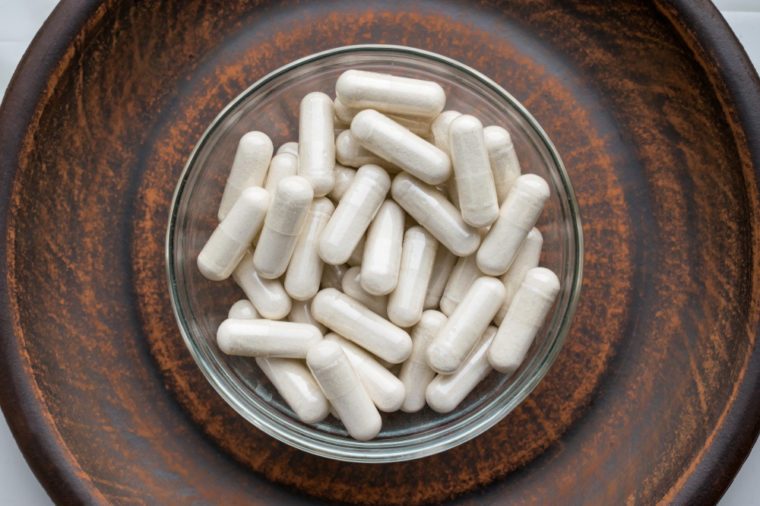 Iryna Imago/Shutterstock
Iryna Imago/Shutterstock
Many people take biotin (also known as vitamin B7) to strengthen their hair and nails, but high levels of biotin in your blood can interfere with the results of lab tests, such as so-called troponin screens which help diagnose heart attacks. “If you have had a lab test done and are concerned about the results, talk to your healthcare provider about the possibility of biotin interference,” the FDA recently warned.
You get too much of a good thing
 Thirteen/Shutterstock
Thirteen/Shutterstock
Sometimes it’s not the vitamin or mineral per se, but how much of it you take, warns Todd Sontag, DO, a family medicine specialist with Orlando Health Physician Associates in Florida. “We can get too much of a good thing, and some vitamins can be toxic in high doses while others will just be excreted through the urine,” he says. For example, too much folic acid may raise the risk of breast and colon cancers. “Too much [vitamin C] supplement (whether it be gummy, chewable, or powder), can lead to an upset stomach,” says Bianca Klotsman, a holistic nutritionist in New York City. What’s more, “too much vitamin D can lead to constipation, nausea, vomiting, poor appetite, and your calcium can begin to spill into your soft tissues,” she says. “The best practice is to take a blood test and then take only what your body is deficient in.” For a complete list of recommended dietary allowances for common vitamins, visit the National Institute of Medicine. Next, find out the 10 ways your body is telling you it’s low on key vitamins.
- লিঙ্ক পান
- ইমেল
- অন্যান্য অ্যাপ
মন্তব্যসমূহ
একটি মন্তব্য পোস্ট করুন